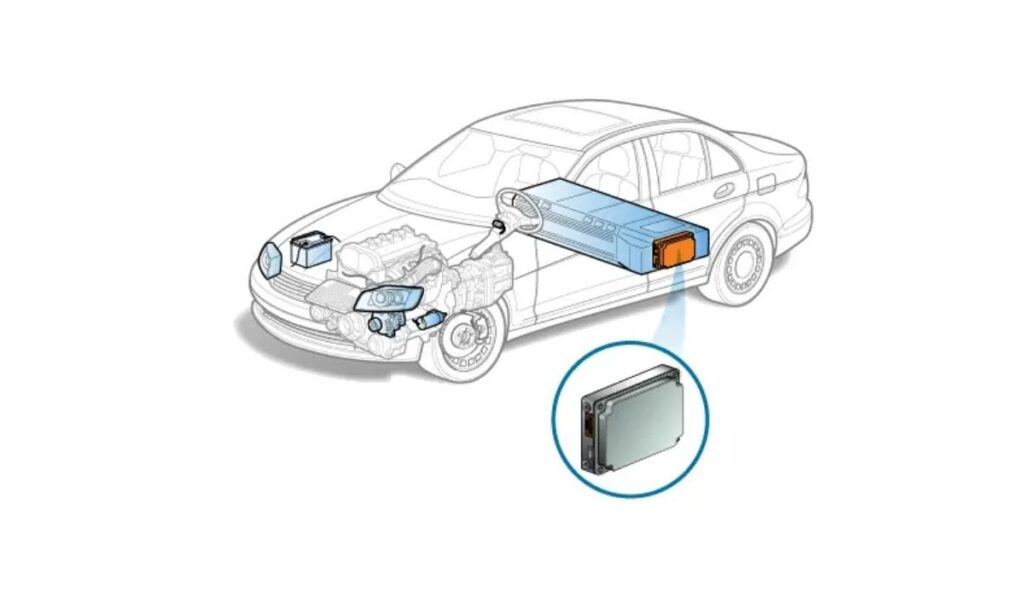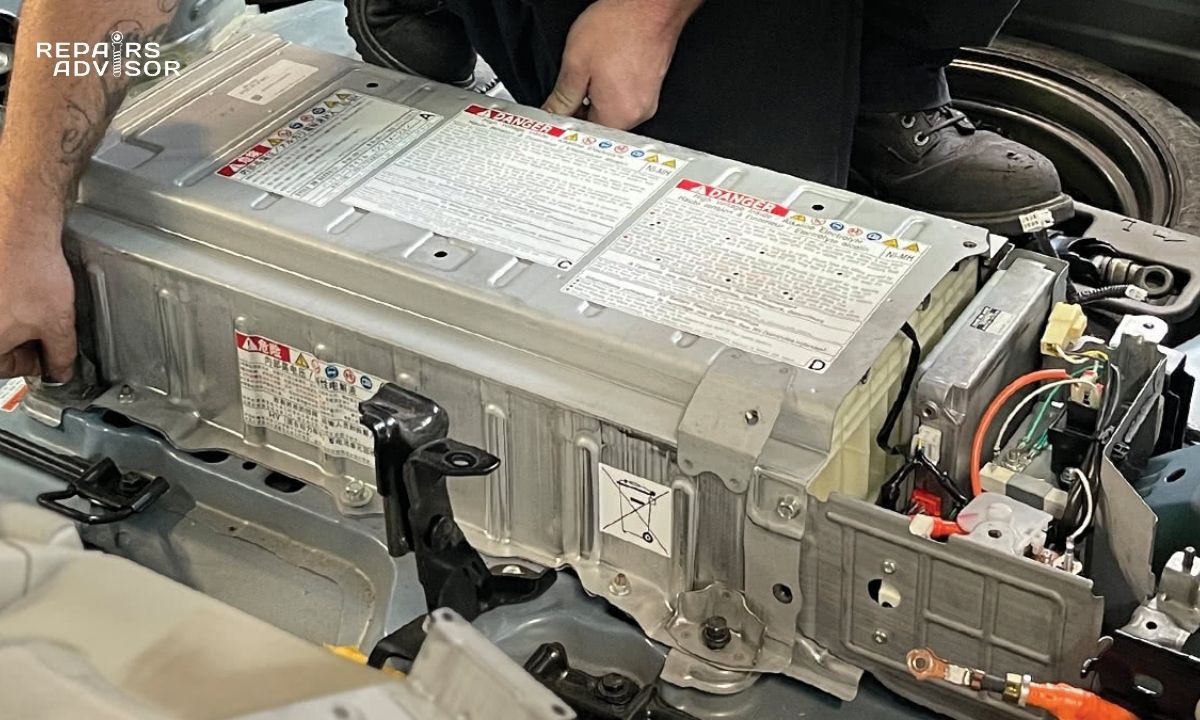In a hybrid vehicle, the hybrid battery control module (HBCM), sometimes called the battery management system (BMS), acts as the sophisticated “brain” for the vehicle’s high-voltage battery pack. Its crucial purpose is to constantly monitor and calculate the precise state of charge (SoC) of the high-voltage battery. It then relays this vital information to the larger high-voltage control unit (often part of the vehicle’s main computer), which uses this data to decide whether to charge the battery (using power from the engine or regenerative braking) or discharge it (sending power to the electric motor to drive the wheels).
Essentially, the HBCM ensures the hybrid battery operates within safe and efficient parameters, optimizing performance and longevity. When this module malfunctions, it can throw the entire hybrid system into disarray.

Signs of a Bad or Failing Hybrid Battery Control Module
Because the HBCM is responsible for critical battery management, its failure can lead to significant and often immediate problems with your hybrid vehicle’s operation. Here are the most common signs:
- Illumination of a Dash-Mounted Warning Light:
- This is typically the first and most direct indicator. A “CHECK HYBRID SYSTEM,” “MALFUNCTION INDICATOR LAMP (MIL),” or a specific battery warning light will illuminate on your dashboard.
- On more advanced systems, the warning may even include a message on the multi-information display indicating a problem with the hybrid battery or charging system. This light signifies that the HBCM has detected an anomaly or a fault within the high-voltage battery system.
- Failure of the Hybrid Battery to Charge or Stay Charged:
- You might notice that your hybrid battery’s charge level on the dashboard display never seems to go up, even after driving for extended periods or during braking (when regenerative charging should occur).
- Conversely, the battery might drain very quickly and refuse to hold a charge, preventing the electric motor from assisting the engine. This directly indicates a problem with the HBCM’s ability to monitor and direct charging/discharging cycles.
- Reduced Fuel Economy:
- A healthy hybrid system uses both the gasoline engine and electric motor efficiently to maximize fuel economy. If the HBCM isn’t working correctly, it might prevent the electric motor from assisting the engine as much as it should, forcing the gasoline engine to do more work. This will result in a noticeable and often significant decrease in your vehicle’s fuel efficiency.
- Reduced Power Output or “Limp Home” Mode:
- When the HBCM malfunctions, the vehicle’s main computer may limit the power output from the hybrid system to protect components. This can lead to a noticeable loss of acceleration or overall power.
- In severe cases, the vehicle may enter a “limp home” mode, where its speed and capabilities are severely restricted to prevent further damage, often allowing you to only drive at a very low speed.
- Unusual Engine Behavior:
- Because the hybrid system is integrated, an HBCM fault can indirectly affect the gasoline engine. You might notice the engine running more frequently than usual (as it tries to compensate for a non-contributing electric motor), or it might idle roughly as the system struggles to balance power delivery.
Important Advice for Hybrid Battery Control Module Repairs
Working with hybrid vehicle high-voltage systems requires extreme caution and specialized training. This is not a DIY task.
- Strict Adherence to Manufacturer Procedures:
- When inspecting or replacing the hybrid battery control module, or any component within the high-voltage system, it is absolutely imperative to follow the manufacturer’s recommended service procedures precisely. These procedures are designed to ensure safety and proper system function.
- Extreme Caution with High-Voltage Systems:
- Serious Risk: The high-voltage battery and associated components in a hybrid vehicle carry substantial electrical energy. Improper handling or disregard for safety protocols can result in severe injury or even death due to electrocution.
- Specialized Training and Equipment: Only certified hybrid technicians who have undergone specific high-voltage safety training should work on these systems. They use specialized insulated tools, personal protective equipment (PPE), and follow strict lockout/tagout procedures to de-energize the system before any work begins.
- Complex Diagnostics:
- Diagnosing an HBCM fault often requires sophisticated diagnostic scanning tools that can communicate with the vehicle’s hybrid control systems and read specific fault codes related to battery cell imbalances, communication errors, or internal module failures. This goes beyond what standard OBD-II scanners can typically do.
- Potential for Battery Cell Replacement (Indirectly Related):
- While the HBCM is the control unit, its failure can sometimes be a symptom of, or lead to, issues with individual battery cells within the high-voltage pack. If the module cannot properly balance or manage the cells, some cells may degrade faster, which could also require separate attention.
Conclusion
The Hybrid Battery Control Module is the sophisticated brain behind your hybrid vehicle’s efficiency and performance. Any malfunction in this module can lead to immediate warning lights, significantly reduced fuel economy, and even leave you stranded. Given the inherent dangers of high-voltage systems and the complexity of hybrid technology, this is not a repair to be taken lightly or attempted by an untrained individual.
For your safety and the longevity of your hybrid vehicle, never try to diagnose or repair a hybrid battery control module yourself. The risks of serious injury or further damage to your expensive hybrid system are simply too high.
Trust only a certified hybrid vehicle technician with this critical repair. They have the specialized training, tools, and strict safety protocols to accurately diagnose the HBCM or any related high-voltage system issues and perform the necessary repairs safely and effectively. Ensure your hybrid continues to run efficiently and reliably – schedule a professional hybrid system inspection today!
